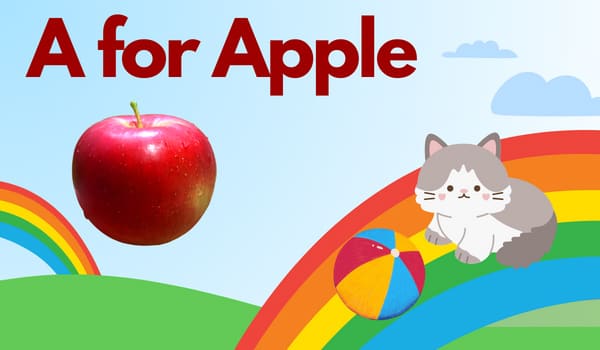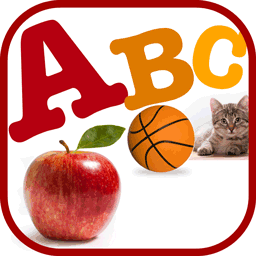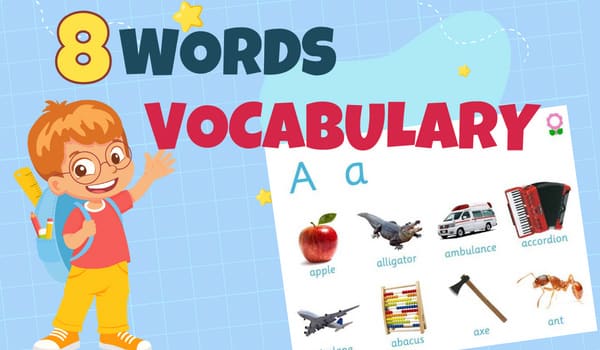Learning vocabulary is vital for kids to pick up phrases and apply them to various perspectives of further knowledge. Since learning words require effective ways to boost their confidence and ability to pick up words, these strategies will help your child improve and enhancing learning routine. Kindergarteners are quick to catch words and apply them in their surroundings. Every child learns new words at their pace, and several children learn more quickly than others. If your child struggles with vocabulary, there are fun and effective ways to boost your child’s confidence in vocabulary.

The accessibility of digital apps has made it easier to help parents work vocabulary lessons with their children without relying on worksheets. This quick and easy method allows kids to engage in vocabulary lessons and enjoy learning words at a young age. Early learning development will help your child to improve vocabulary by implementing these helpful tips to keep your child engaged. These strategies will improve your child’s confidence in vocabulary and enhance memory.
Label items around the house:
Labelling items around the house is the best way to boost your child’s confidence in vocabulary. This common activity has been applied at the kindergarten level where kids place words on each object to learn and memorize the word. To use this activity well is to put labels on the item and ask your child where that particular object is located. Once your child has found the object, ask the spelling of the phrase to recall how that word is spelled. Give attention to what your child sees or uses often. The more your child remembers objects, the more they develop and learn phrases quicker.
Magnetic Letters:
Using magnetic letters is another way to create vocabulary words for kids as this strategy is effective in pronouncing the words right. If your child has problems with spelling, using magnetic letters is the best solution to structure letters into phrases and recall the spelling of the word. Using magnetic letters not only helps kids to learn phrases but also benefits in pronouncing words correctly.
To implement this activity is to go for the lowercase alphabet and begin with simple words. Once your child understands and recalls short phrases, continue to work on more complex terms. The best way to use magnetic letters with your child is, to begin with, their name, favourite colour, animal and many more. It will help to show what they can do with magnets.
Alphabet Vocabulary for Kids App:
Apps have become a go-to educational tool for parents that provides a quick way to teach preschool vocabulary words and build confidence in learning new and existing terms. To build your child’s confidence in vocabulary, this app will provide your child with a quick way to learn new terms.
The vocabulary app for kids consists of eight words in each letter with a sound effect to know how each object sounds. It will develop your child’s auditory learning of how each word makes a sound. The different settings allow your child to change fonts, zooming in options and many more for a fun learning routine. The educational tool is free from distraction which makes a great user interface and real-life photos to process the visual information faster.
Converse in a two-way communication with your Child:
Rather than giving instructions to your child, a two-way conversation will stimulate a healthy bonding and develop new vocabularies. Once your child engages in a conversation with you, they will be willing to talk and share any information that goes on within their mind. When beginning to talk with your child, do not just ask short questions, ask open-ended questions for further communication. The more your child articulates their thoughts and feelings, the more confident they will pick up new phrases. Indulge in this habit daily to enhance your child’s communication skills.
Establish a reading routine:
Reading is one of the most crucial activities for grasping imagination and new terms on the go. Once your child has finished reading, introduce four to five words based on what they have read in the book. It will help your child to learn the spelling and the definitions behind each phrase. Establishing a reading routine is to get your child into the habit of reading one book every day. Not only to stick to one type of book but reading in various kinds including short stories, picture books, fiction books and non-fiction copies.
Reading various books will help your child develop new words and explore the way the books are written. If your child has a particular genre to read, this is a great way to encourage your child to get into reading based on their preferences. To expand your child’s vocabulary is to get into the habit of reading and establish an effective routine to read once a day.
Take your child outdoors:
Children are quick to pick up words in their surroundings. Taking your child out is one of the most fantastic ways to play different vocabulary games. When travelling or heading outdoors, take your child along to explore other places and ask them about the object your child can find. The more your child goes to various locations, the more they will pick up words quickly. This great exposure makes a fantastic way to practice the terms once you reach the destination and boost your child’s confidence.
Make them listen to English songs:
Music enhances your child’s auditory skills and helps to learn new phrases. When you listen to music, make your child involved in the song. They will pay attention to the lyrics, tunes and beat of the music. When your child listens to music, they memorize the lyrics quicker than adults do. It is a great activity to listen to tracks and catchwords quickly. They will learn how to pronounce particular terms and expand their vocabulary.
Play vocabulary board games:
Vocabulary board games are the best for developing your child’s development of word creation and building words. Vocabulary games such as Scrabble, Word Bingo, Hangman and different Word puzzles bring your child to develop and learn words to keep them occupied. For a great family weekend, this activity will boost your child’s confidence and phrases in further learning.
Ask tons of questions:
Most kids struggle to have a conversation and make grammatical mistakes while speaking. One way to erase this problem is to ask open-ended questions that interest your child and why your child has given that specific answer. Rather than asking yes or no questions, try to come up with a question that will help your child to answer in the first place.
The more you ask questions to your child, the more they will encourage to speak and reinforce vocabulary. However, too long conversations will make it stressful. The best way to do it is, to begin with, short questions with breaks in between.
Encourage your Child to Write:
Writing is the most crucial skill that kids must know how to write. It includes writing their names, summaries, and short stories. To help your child to choose the topic to begin to write. It makes an effective way to start your child’s early stages of writing.
Final Words:
Learning vocabulary is crucial for children to pick up words and apply them to various perspectives. These easy strategies will help to boost your child’s confidence in vocabulary and enhance further learning routines. Once you implement these strategies with your child, they will develop new terms quickly.



